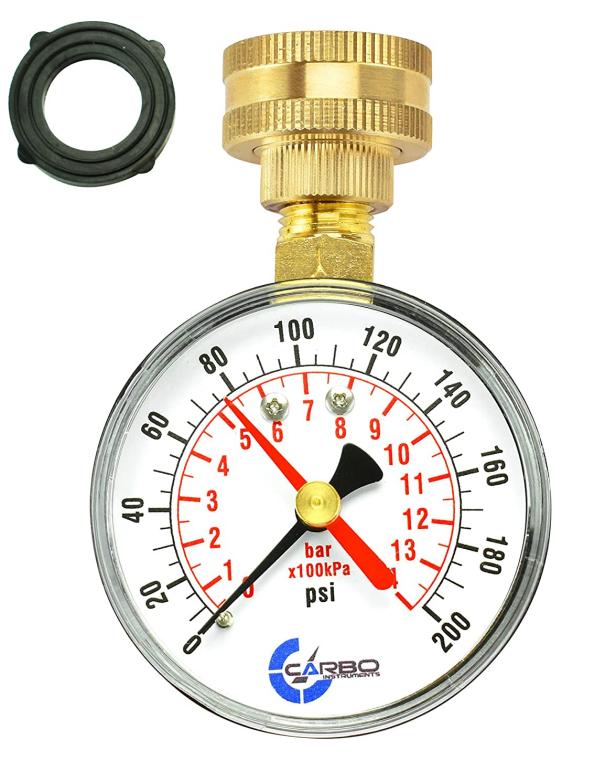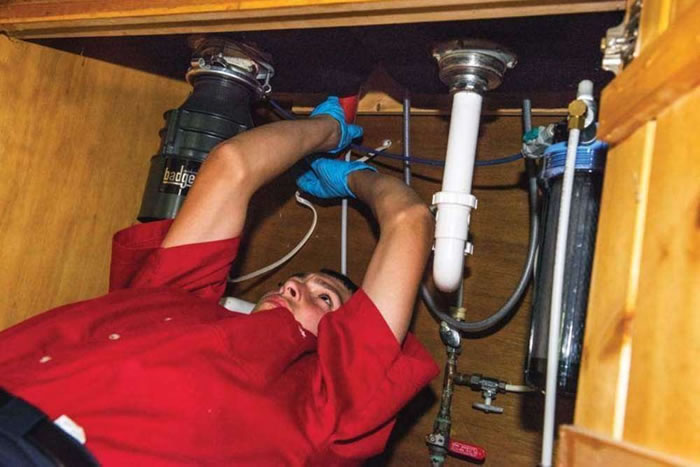Step-by-Step Tips for Dealing with Low Water Pressure in Your Home
Step-by-Step Tips for Dealing with Low Water Pressure in Your Home
Blog Article
We've noticed the article relating to 9 Reasons for Low Water Pressure in Your House below on the web and concluded it made good sense to share it with you here.

Low water stress in your home can be a frustrating problem, affecting whatever from bathing to washing dishes. If you're experiencing weak water circulation, there are numerous feasible reasons and options to explore. In this overview, we'll talk about common reasons for low water pressure and functional steps to address the issue effectively.
Introduction to Low Water Pressure
Low tide pressure takes place when the flow of water from your faucets, showers, and other fixtures is weak than typical. This can make everyday tasks more challenging and much less efficient. Recognizing the causes of low water pressure is crucial to locating the right solution.
Common Causes of Low Water Stress
Faulty Stress Regulators
Stress regulatory authorities are accountable for maintaining regular water pressure in your house. If they malfunction, it can result in low tide pressure or irregular flow throughout the house.
Metropolitan Water System Issues
Sometimes, the issue lies outside your home. Local supply of water concerns, such as main line leaks or upkeep job, can temporarily decrease water stress in your location.
Pipe Obstructions
Gradually, pipelines can become obstructed with mineral deposits, debris, or debris, restricting the flow of water. This is a typical problem in older homes with galvanized steel pipelines.
Rust
Rust within pipelines can cause leaks and lowered water stress. Corrosion buildup can restrict water circulation, specifically in maturing plumbing systems.
Just How to Detect Low Water Stress
Examining Pipelines
Check noticeable pipes for indicators of leakages, rust, or blockages. Take note of any uncommon sounds, such as banging or rattling pipelines, which might suggest issues within the plumbing system.
Consulting with a Plumber
If you're not able to determine the cause of low water pressure, think about working with an expert plumber to perform a detailed inspection. They can recognize underlying issues and recommend appropriate options.
Inspecting Faucets and Components
Beginning by examining the water pressure at various faucets and components throughout your home. If the concern is separated to details areas, it might show localized issues.
Do It Yourself Solutions to Deal With Low Water Pressure
Flushing Water Heater
Debris build-up in the hot water heater can restrict circulation and decrease effectiveness. Purging the tank regularly aids get rid of debris and keep optimum performance.
Checking Stress Regulatory Authority
Guarantee that the stress regulator is working correctly. Adjusting or replacing the regulatory authority can assist bring back proper water stress throughout your home.
Cleaning Aerators and Showerheads
Mineral deposits can build up in aerators and showerheads, reducing water circulation. Get rid of and clean these parts consistently to improve water pressure.
Cleaning Clogs in Pipeline
For small clogs, try using a plumbing snake or chemical drain cleaner to clear obstructions in pipelines. Be cautious when making use of chemicals and comply with safety and security guidelines.
When to Call a Specialist Plumber
If do it yourself initiatives fall short to settle the concern or if you believe significant plumbing problems, it's ideal to seek help from a licensed plumber. They have the know-how and tools to address intricate concerns safely and properly.
Safety Nets to Maintain Water Pressure
Installing a Stress Booster
Think about installing a pressure booster pump to improve water stress in areas with consistently low circulation. This can be particularly helpful for multi-story homes or residential properties with high-demand fixtures.
Tracking Water Use
Be mindful of water use behaviors and prevent overtaxing the plumbing system. Simple changes, such as incredible showers and laundry lots, can help maintain appropriate water stress.
Routine Upkeep
Schedule regular upkeep for your plumbing system to avoid concerns such as corrosion, leaks, and blockages. Resolving small troubles early can help prevent more considerable repair services later on.
Verdict
Managing low water stress can be frustrating, however recognizing the underlying reasons and executing ideal remedies can bring back ideal flow throughout your home. Whether it's cleansing aerators, evaluating pipes, or speaking with a plumber, taking aggressive steps can make sure a constant supply of water for your day-to-day demands.
HOW TO FIX LOW WATER PRESSURE IN YOUR HOUSE (EXPERT GUIDE)
The morning shower lacking any real pressure? Bathtub taking hours to fill? Or maybe you’re dissatisfied with the inadequate performance from your combi boiler?
Then you, like millions of others across the UK, might be experiencing low water pressure.
Fortunately, the good news is that you don’t have to continue living this way. The cause of low water pressure in the home is often quite simple, and you may not even require a plumber to fix the problem.
What causes low water pressure in the house?
If you are experiencing issues with water pressure throughout your home, then you may have one of the problems outlined below.
Most of these problems can be fixed quite easily, but for others, you may need to contact a plumber.
Obstructed Shutoff Valve
If you’ve just bought a new home or recently had building work conducted on your property, there is a chance that your water valves were not fully opened.
If the water valve is partially closed, then you may be restricting the amount of water entering your home. To fix this, simply ensure the valve is fully open.
If the valve appears fully open but you are still encountering reduced water pressure, then the valve may be broken. If this is the case, do not under any circumstances try to fix it without proper training.
Often found under your kitchen sink, a water valve will usually look like a bright yellow handle.
Again, if you believe the water valve is broken, contact a plumber immediately.
Leaks in Your Water Pipes
Leaks are the worst-case scenario when it comes to low water pressure.
If the water pipes are damaged, then this will cause low water pressure, as not all the water will make it to your taps.
After you’ve checked to see if the valve is fully open, you can conduct a leak check of your home. Now, this may seem scary, but it is actually quite simple.
Clogged Water Pipes
Clogged water pipes are one of the most common causes of low water pressure.
These clogs usually build-up when your home is supplied water via iron pipes. Iron is particularly vulnerable to rusting which can then break off and cause an obstruction within your system. You also face the problem of things like dirt, gravel or sand entering creating mineral deposits which further block water flowing from the mains water supply.
Unfortunately, if you suspect that clogged pipes may be restricting your water supply, then you will need to contact a plumber.
In this situation, you will either need to have your pipes removed and cleaned or in more severe cases, you could require a new set of water pipes.
Designer Taps
Designer taps look fantastic, but are they built to be efficient in your plumbing system? Modern taps are built for modern homes and they often have lower flow rates that are specifically designed for use within high-pressure systems.
Install a Water Pressure Booster Pump
If the issue is simply that the mains water pressure supply is too low, the simplest fix is to invest in a booster pump. Found in homes of all shapes and sizes, booster pumps are a relatively cheap option to add extra pressure to your home.
Designed to increase water pressure by passing water into the pump from your mains supply and then ejecting it into your home water system at a higher pressure, a booster pump is a truly simple and effective solution to increasing water pressure.
https://www.anchorpumps.com/blog/the-plumbers-guide-to-fixing-low-water-pressure/

Do you appreciate reading about ? Give a remark down below. We will be pleased to know your ideas about this posting. We are looking forward that you come back again later on. Do you know about anybody else who is serious about the topic? Please feel free to share it. We truly appreciate your readership.
Visit Link Report this page